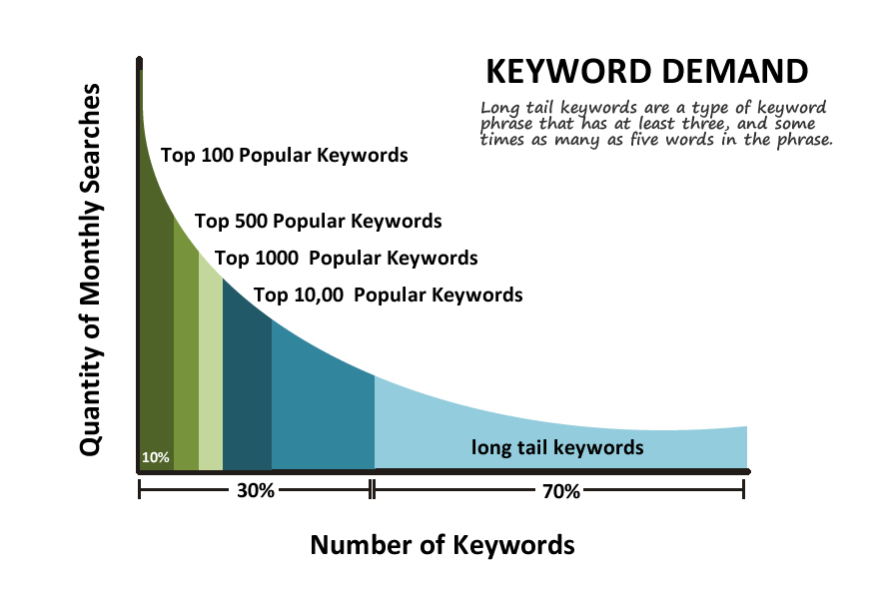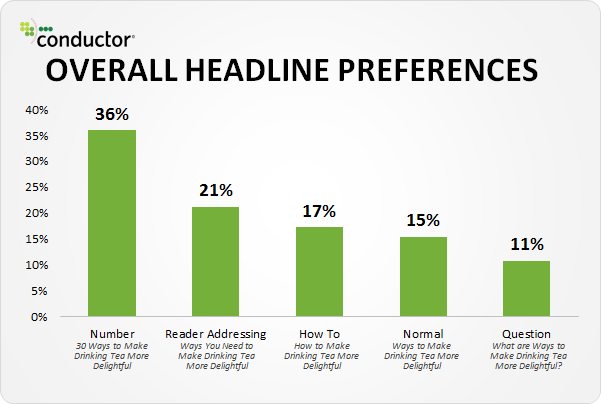I may get a paid commission for purchases made after clicking a link in this post, click here to read my disclosure.
Focusing on keyword rankings for your blog is essential,
In fact, it is said that you shouldn’t write any word for a blog post without doing keyword research.
People are constantly searching for things on Google,
Things that your website may be able to provide the answers to,
But your website won’t be found in your blog posts that are not targeting a particular keyword or optimized to rank for a particular keyword that a user is typing into the search bar.
There are so many ways to optimize your content to help improve your position in the search rankings.
In this post,
We are going to look at what keyword rankings are 9 Improvements that you can make on your blog posts to start seeing some changes in your keyword rankings fast.
What Are Keyword Rankings?
What are keyword rankings in SEO?
Keyword rankings simply refer to the position of your web page’s URL for results shown when a user types in a search query into the Google search bar.
Millions of words are being searched by users every single day,
Google uses it search algorithms to determine if a web page on your website meets the search intent of the searched keyword and meets other ranking factors,
It is then displayed to the user as the website with the best qualifying content that matches the search’s intent.
Why You Need To Know Your Keyword Rankings
Knowing what keywords your web pages are currently ranking for
and which ones they are not ranking for gives you an idea of where to apply more efforts in terms of SEO optimization and marketing strategies.
This is important to help you get free organic traffic from Google,
The reason why we focus on Google is that it is the only search engine that gets 85% of all searches performed on the internet,
Google has a whopping 250 million searches from just the US alone!
After writing a blog post,
You saw that it was successfully indexed and ranked for the keywords you intended,
but the ranking position was really low and so it had no opportunity of being seen by a searcher in the result pages because honestly,
75% of the searchers don’t ever go beyond the first page of the search engine results.
Shocking right?
You want to go ahead and revisit the blog post you have written,
build backlinks to it from other established blogs in your niche, promote it on social media, and other search engines as well to help generate more traffic from it.
How To Know Your Keyword Rankings
There are so many keyword ranks checker tools you can use in finding out what keywords your website is ranking for different keywords and their positions in the search engine result pages,
The most popular of these tools is the Google Search Console.
Google Search Console is a free website management software for Google publishers,
It is a website tool that helps you to control and manage how your website interacts with Google,
You can see your website performance, optimization opportunities as well as website problems or issues.
To find out what keywords your website is currently ranking for,
You want to visit the Search queries section under the performance tab in your Google Search Console dashboard to view what search queries your pages are ranking for, the number of impressions clicks as well as the ranking position.
9 Ways To Improve Your Keyword Rankings
1. Target The Right Long Tail Keywords
When it comes to blogging,
If you are not targeting the right keywords or any keywords at all, you are doing it wrong,
Google has gotten smarter and so optimizing your content to rank in the SERPs has gotten even more complicated than it previously was.
You want to make sure that you are targeting keywords that you can easily rank for,
The easiest types of keywords to rank for are long tail keywords.

They are usually about 4 to 5 words long and are usually a bit more specific than a seed keyword,
for example, if a seed keyword was “milk powder”,
the long-tail version of it would probably be “Best milk powder for kids”.
As you can see the latter is longer and more specific than the seed keyword,
It would be a lot easier to rank for because the longer the keyword,
the lesser the searches and the easier it is to rank for them.
Make sure that the keywords you are targeting are relevant to your niche and that you can easily rank them with a little SEO effort.
2. Improve User Experience & Website Navigation
When focusing on your keyword rankings,
It is very important to note that the easier it is for your users to find things they are searching for on your website,
the easier it is for your keyword rankings to improve.
What do I mean?
Imagine you landed on a web page where you didn’t understand where to go, and what buttons to click,
and ended up getting so frustrated with the website navigation that you clicked right out of the website without going any further.
It is almost impossible for your keyword rankings to improve when your website navigation and website user experience is poor,
For the best results, make your navigation easy to see,
Add links to relevant pages in places where your readers can easily find them.
Pay attention to your website’s loading speed,
Make sure it loads fast enough so that your readers don’t get frustrated and bounce right off your website.
3. Satisfy The Search Intent Behind Your Focus Keyword
Search Intent is essential when it comes to keyword rankings,
After all,
How can you create great content and be ranked for a keyword if you did not understand why it was being searched in the first place.
Previously,
You would just have to repeat your focus keyword multiple times within your content to be ranked in the search results,
Google has gotten a lot smarter and is now able to understand the reason behind why a user has typed a keyword into the search bar, this is known as search intent.
If your blog post doesn’t satisfy search intent,
chances are that the user will click right out of your website faster than you can say jack.
There are so many reasons why so many keywords are being typed into the Google search bar each day,
and it has been grouped into 4 main categories:
- Informational – The searcher is looking for informational results about the keyword they have typed.
- Navigational – The searcher wants to be navigated to a particular website or web page.
- Transactional – The searcher wants to purchase something they have in mind.
- Commercial – The searcher intends to buy something in the near future.
Take a look at these 4 categories,
Now imagine writing a blog post for a keyword whose search intent is transactional,
That’s a straight MISS, right?
It is very important to create pages according to the intent, and even after determining the intent behind the keyword,
You want to make sure that you can thoroughly satisfy that intent better than the results currently existing for that keyword.
4. Optimize Blog Posts For Readers & Search Engines
When chasing keyword rankings and focusing on increasing website traffic,
It is easy to forget that you are writing for actual people like yourself who are going to read your content,
not just optimizing it to rank on search engines.
Make sure that you sound as human and relatable as possible in your blog posts,
It is important to let your users know that you are not just a face behind a computer screen but that you are an actual person,
Showcase your personality with your words while also optimizing your posts for the search engines as well.
Practice proper blog SEO strategies online and offline to help improve your search rankings.
5. Craft Emotionally Engaging Headlines
Your headlines are usually the first thing people see in search engine results,
and so it sort of determines whether or not they click through to your blog to read what you have written.
You can have an amazing blog post full of beneficial and informational tips but if your headline sucks,
That blog post will end up being skipped over in the search engine result pages,

For the best results, SEO expert Backlinko says it is best to note the following statistics and apply them to your blog.
- Headlines that have 14 to 17 words in them outperform short headlines by 76.7% when it comes to social sharing.
- Headlines with a question mark on them have 23.3% more social shares than those without.
- 30% of overall blog readers prefer headlines that contain a number.
To help you create better headlines,
It is better to draft 5 to 10 headlines and then choose the best out of them,
You can use tools like Fatjoe Headline Analyzer and SEO Oppressor Blog Title Generator tool to help you create headlines that convert into clicks.
6. Provide Answers To Frequently Asked Questions
Another really good way to blow up your Google search ranking is to provide answers to questions people are asking for in your blog niche.

People are constantly searching for these answers and so answering them on your blog can help improve your keyword rankings and also show your answers in the featured snippets on the SERPs.
To get questions in your niche you can look at:
- The “People also ask” section of the search results
- Google’s Autosuggest
- Forums like Reddit and Quora
- Other Related questions are at the bottom of the Google SERPs.
- Using an SEO tool like Ubersuggest or Ahrefs.
Be sure to answer the questions in the best possible way they can be answered while also paying close attention to how they will be displayed as featured snippets.
7. Build Backlinks To Your Blog Posts
We cant talk about keyword rankings without talking about backlinks,
Backlinks are the best way to increase your rankings on the SERPs and there are a lot of ways to build backlinks back to your blog.
The most common method is to write guest posts for other big blogs in your niche,
This is what is known as guest posting or guest blogging,
it can be a really great way to improve the backlink profile of your blog,
get the attention of readers in your niche because you get access to a wider audience, and also increase your website traffic.
Another way to build backlinks is to use a tool like HARO (Help A Reporter Out) to answer questions editors and reporters are actively searching for in your blog niche,
You can also create more shareable content like infographics, and data statistics reports that people would love to link out to.
8. Promote Your Content
Another really great way to improve your keyword rankings is to advertise and promote your content on social media channels like Facebook, Twitter, Instagram, etc.
You can find your target audience on these platforms, grow your backlinks, increase your newsletter signups and even drive sales through these platforms,
The really great thing about promoting your content on social media platforms is that you can generate a ton of referral traffic from these massive websites that drive clicks to your blog.
The more social traffic you get from your social media activities to your website, the stronger your social signals,
This tells Google that people love your content and are willing to see more of it,
Due to this reason, it ranks higher in the search results, not just on these platforms but on Google as well.
Just make sure that before you spend money on Ads on any of these platforms,
You have set clearly defined goals on what each Ad campaign should target and accomplish,
This can involve defining your target audience, their location, their interests, a budget for your campaign and so much more.
This helps you determine whether the campaign was a success after it ends.
9. Update Old Content Regularly
Recent data has shown that so many bloggers got a great influx of website traffic to their blogs after they updated old blog posts that were outdated.
The most important reasons why you need to update your old content regularly are because:
- It increases your website traffic
- Google can tell your content is fresh and up to date with the latest trends or changes.
- It can boost your rankings rapidly.
- Your readers know that you care that the information they get is current.
Be it tweaking your headlines, improving your content, or adding more images, videos or even infographics to already existing content are really great ways to rank keywords rapidly.
FAQs
What are keyword rankings?
Keyword rankings are the position of a website on a search engine results page (SERP) in response to a particular keyword or search phrase. A website’s rank is determined by how often that site appears as a result of the given keyword or phrase. The higher the rank, the more likely it is that someone searching for that keyword or phrase will click on your website.
How can I improve my keyword rankings?
There is no definitive answer to this question. However, some common strategies include optimizing your website and web pages for keywords, building links to your website from other high-quality websites, and publishing high-quality content that is relevant to your target audience.
What is a good keyword ranking?
A good keyword ranking is one that is high enough to ensure your website appears as the top result for users conducting a search using that keyword.
The higher your ranking, the more likely it is that people will find your site when they conduct a search using that keyword. To improve your ranking, you’ll need to focus on optimizing your website for search engines and creating quality content that people will want to share.
What is a bad keyword ranking?
If you are a business, your goal should be to achieve a #1 ranking for your target keywords. A bad keyword ranking would be any placement lower than this.
There are a number of reasons why you might not achieve a #1 ranking, including but not limited to:
-You are competing with bigger businesses with more of a budget for SEO
-Your website is not optimized for search engines
-You are not using the right keywords or keyword phrases in your content and/or titles
-Your website has low authority and/or poor backlinks
How do I track my keyword rankings?
Keyword rankings can be tracked in a number of ways. One way is to use a tool such as Google Webmaster Tools, which will show you your site’s search engine visibility and how your site appears in search engine results pages (SERPs).
Another way to track your keyword rankings is to use a tool like Moz’s Pro Rank Tracker. This tool will help you track your rankings for specific keywords over time so that you can see if your efforts are making a difference.
Finally, you can also use the Google AdWords Keyword Planner to get information on average monthly searches and competition levels for specific keywords. This information can help you determine whether or not it’s worth targeting certain keywords in your marketing efforts.
What are some common mistakes people make with keyword rankings?
There are a few common mistakes that people make with their keyword rankings.
1) Not using the right keywords: This is probably the most common mistake that people make. You need to use keywords that are relevant to your business and your target audience.
2) Neglecting long-tail keywords: Long-tail keywords are less popular, but they can be more targeted and more lucrative.
3) Not tracking rankings over time: Rankings can fluctuate, so you need to track them over time to see how your efforts are impacting your results.
4) Focusing on rank instead of traffic: Rankings are important, but they should not be your only focus. You also need to focus on driving traffic to your website.
How can I improve my website’s SEO to improve my keyword rankings?
Improving your website’s SEO can be a daunting task, but there are a few simple things you can do to get started.
First, make sure that your website is indexed by Google. You can use the Google Search Console to check if your website is indexed and to find out how your website is performing in search results.
Next, ensure that your website’s titles and meta descriptions are optimized for your target keywords. You can use the Yoast SEO plugin for WordPress to help you with this task.
Finally, build backlinks to your website from high-quality websites. The more links you have from authoritative websites, the higher your website will rank in search results.
What are some other ways to improve my keyword rankings?
There are a variety of ways to improve your keyword rankings, but the most important factor is always the quality of your content. You can improve your keyword rankings by adding keywords to your titles and headings, using them in your content body and by optimizing your web pages for those keywords.
You can also improve your rankings by building links to your site from other high-quality websites. And you can use social media to promote your content and get it in front of more people. Ultimately, the best way to improve your keyword rankings is to provide valuable information that meets the needs of your audience.
How To Improve Keyword Rankings – Conclusion
You should always strive to improve the keyword rankings of blog posts that you have written on your blog,
The higher the keyword ranks of a page in the SERPs, the higher the website traffic, email newsletter subscriptions, and even product and affiliate sales.
Which is what every blogger dreams of right?
Starting a blog and growing it full-time can be hard,
This is why you need to focus on proper keyword research and SEO on every blog post you write to make sure that you are ranking keywords in your content and that it is not just sitting on your blog and not accomplishing anything.
For proper keyword rank tracking, you can use tools like Ahrefs, SEM Rush, or Ubersuggest to find out which keywords you are currently ranking for and which ones need improvement.
Have a suggestion? let me know, and leave a comment below…

